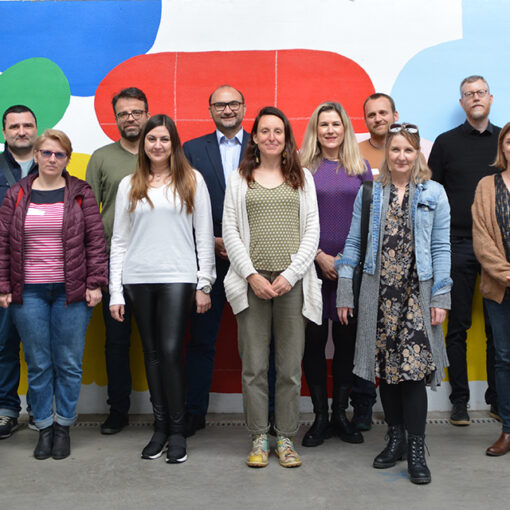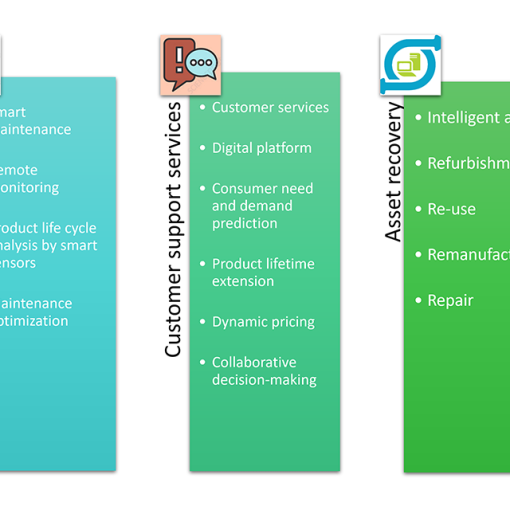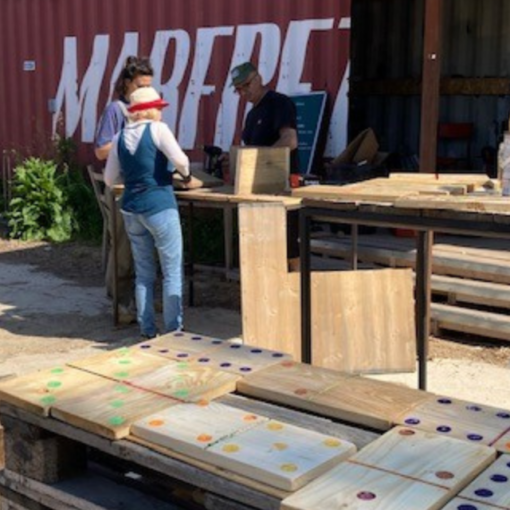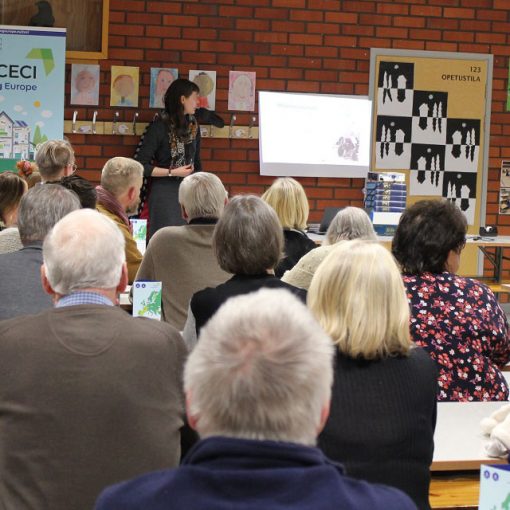On April 11, 2024, Commissioner Ivanova launched an EU-wide training network for sustainability in construction, funded by Circular Bio-based Europe Joint Undertaking. The New European Bauhaus Academy (NEBA) Alliance will offer training on bio-based building solutions across the entire construction ecosystem, and thus aiming to cut construction emissions by 60% by 2030 through bio-based solutions. (Circular Bio-based Europe Joint Undertaking 2024.)
Selecting materials in construction is critical for advancing the United Nation Sustainable Development Goals (UN SDGs), including promoting sustainable cities and communities (SDG11) and encouraging responsible consumption and production (SDG12). In addition to environmental benefits, using bio-based materials in construction supports local resources, fosters economic growth, and enhances functional performance. (Cosentino et al. 2024.)
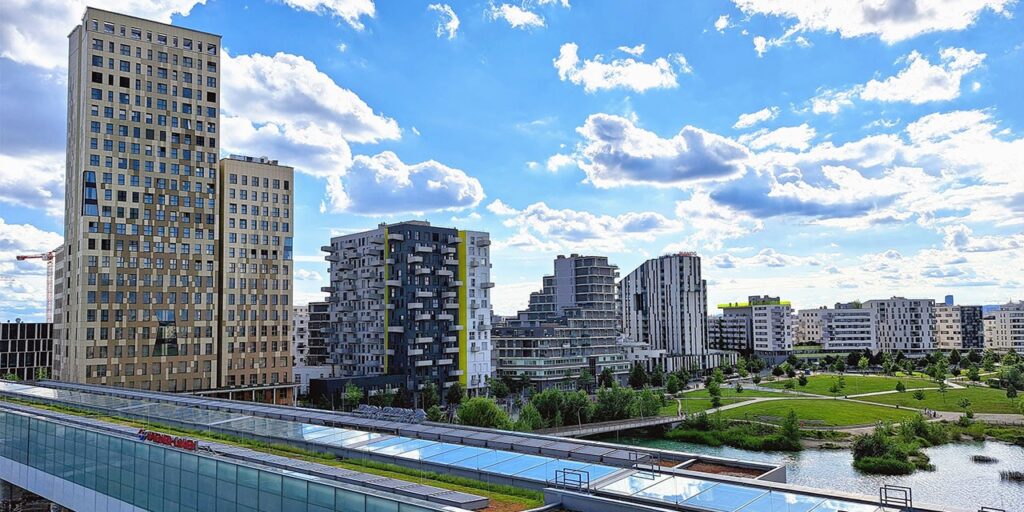
Advancing Biobased Construction
The Policy Learning Platform of Interreg Europe organized a workshop on Promoting sustainable materials and circularity in construction, in May 2024, in Vienna. For the event, one of the world’s tallest wooden skyscrapers hotels was chosen. The structure is 75% wood, with interior walls and ceilings made of spruce. The timber construction saves around 2 800 tonnes of CO₂, equivalent to 20 million car kilometres or 1 300 years of daily 40-kilometer car journeys.
Link to the Dormero HoHo hotel website.
Collaboration and creation of the local value chain is vital for biobased raw construction materials adoption. Commitments and green public procurement build trust and ensure demand for farmers to grow the necessary crops. For instance, a housing association in Noord-Brabant, the Netherlands, have committed to use only biobased insulation materials in new and renovation projects from 2027 onward (Picavet 2024).
To stimulate the uptake of renewable and biobased materials, umbrella programs, capacity building, RDI, and piloting are essential. Circular Flanders, a collaborative initiative in Belgium’s Flanders region aimed at advancing a circular economy, launched the Green Deal on Circular Construction, a voluntary partnership with over 370 organizations and the Flemish government, combining practice and knowledge to address various barriers and share tools and methodologies (Willems 2024). In Noord-Brabant, they introduced a Building Balance programme to create demand for biobased materials across the value chain. The goals are to cultivate 50,000 hectares of fibre crops for building and construction by 2030, increase the use of biobased materials in the construction sector from 0.5% to 30% by 2030, achieve a CO2 reduction of 1.5 Mton/year by 2030, and ensure that by 2030 30% of all new buildings are biobased. (Picavet 2024.)
Timber Construction for Modern Living
A site visit to a Timber construction at Forum am Seebogen (Image 2) was organized as a part of the workshop. The building combines housing with offices and shared infrastructure with a goal of constructing a high-quality living space quickly using wooden material. Different types of prefabricated modules were used, allowing for flexible layouts and connections between spaces. The building is located in the Seestadt Aspern, one of Europe’s largest urban development projects.
Link to the Forum am Seebogen.
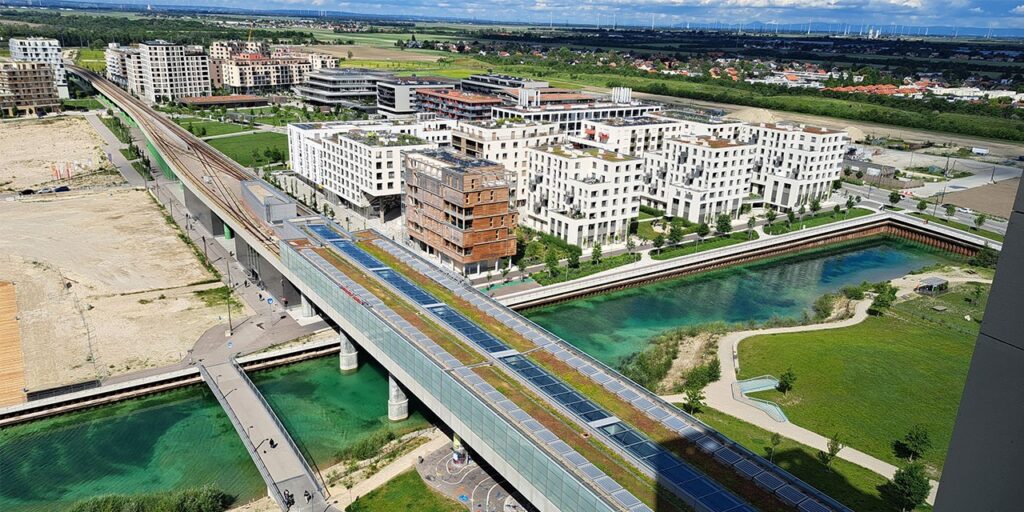
In conclusion, the adoption of biobased construction materials presents a significant opportunity to reduce emissions, support local economies, and enhance sustainability in the construction sector. LAB University of Applied Sciences focuses on developing sustainable, multipurpose bio-based materials and supporting companies in adopting circular economy practices. By fostering collaboration and sharing knowledge, the adoption of these solutions in the construction industry can be accelerated.
Author
Katerina Medkova works as an RDI Specialist at LAB University of Applied Sciences and is the CITISYSTEM Project Manager.
References
Circular Bio-based Europe Joint Undertaking. 2024. New European Bauhaus Academy launched. Cited 3 Jul 2024. Available at https://www.cbe.europa.eu/news/new-european-bauhaus-academy-launched
Cosentino, L., Fernandes, J. & Mateus, R. 2024. Fast-Growing Bio-Based Construction Materials as an Approach to Accelerate United Nations Sustainable Development Goals. Applied Sciences. Vol. 14 (11). Cited 3 Jul 2024. Available at https://doi.org/10.3390/app14114850
Picavet, C. 2024. Building Balance. Oral presentation at the Promoting sustainable materials and circularity in construction workshop on 22 May 2024, Vienna.
Willems, E. 2024. Green Deal Circular Construction. Oral presentation at the Promoting sustainable materials and circularity in construction workshop on 22 May 2024, Vienna.
Links
Link 1. Dormero. 2024. Dormero HoHo Wien. Cited 3 Jul 2024. Available at https://www.dormero.de/en/hotel-wien/
Link 2. heri & salli. 2024. Forum Am Seebogen. Cited 3 Jul 2024. Available at https://www.heriundsalli.com/en/forum-am-seebogen

